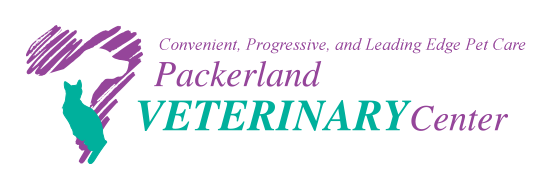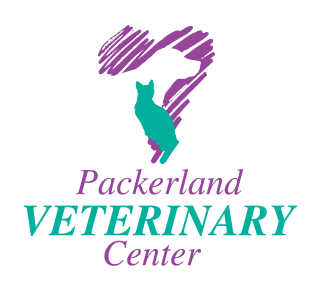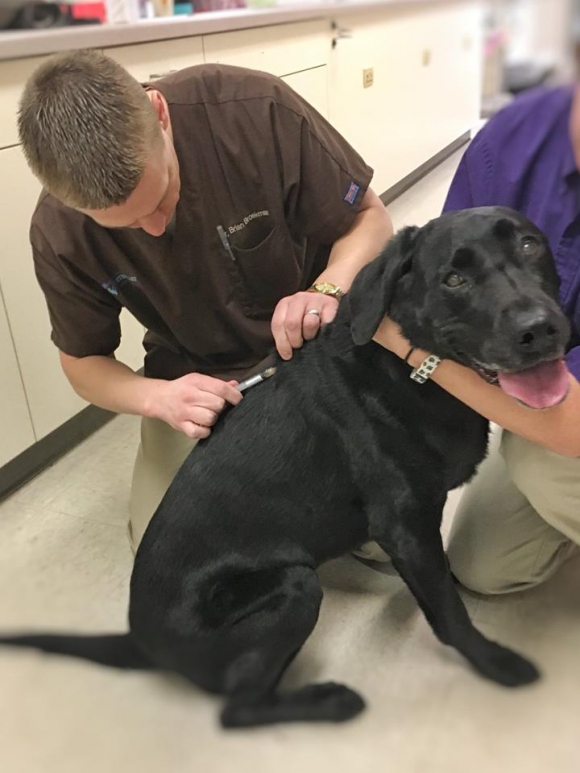


ASK US
Canine Cancer Vaccine
Cancer. No one likes to hear that word, whether it is for a person or a pet. But, the outcome of that diagnosis is not as dire as it once was. There have been many advances in both human and companion animal cancer treatment. In the forefront of new and emerging treatments is immunotherapy. This modality uses the individuals own immune system to fight the cancer. Interestingly, this immune attack is created from the cancer itself.
Immunotherapies for cancer treatment were typically only available to patients enrolled in university research studies, or at Veterinary Teaching Hospitals. MediVet Biologics, the same company offering in-house Stem Cell Therapy (which is also available at Packerland Veterinary Center), has been offering the Canine Autologous Cancer Vaccine since 2015. Packerland Veterinary Center has been offering that service through MediVet since 2016.
The cancer vaccine is applicable for many different types of cancer, and there is no dog breed, weight or age restriction. The primary requirement is that the pet has a tumor that can be removed and that the sample has enough available tissue to both create the cancer vaccine and go through histopathology to determine the type of cancer. It is also recommended that the pet have an expected survival time of greater than 3 months, without anti-cancer therapy.
It takes 7-10 business days to create the vaccine and have it undergo sterility testing. The vaccine is then shipped to the clinic as 3 frozen, single dose syringes. The priming dose is given on Day 0 and the booster doses are given on Day 30 and Day 60 thereafter. Vaccination is provided on an outpatient basis, with the pet monitored for approximately 1 hour following the vaccination. Adverse reactions are not expected, but there may be a minor fever and/or minimal inflammation over a 48hr period. A minor inflammatory reaction is actually beneficial for the success of the treatment. The vaccine is a killed vaccine product, containing cellular fragments from approximately 10 million tumor cells. Sometimes when large amounts of tissue sample are available, MediVet is able to create more than just 3 vaccines, with additional vaccines available for further booster treatments.
In trials, more than 85% of patients had an increase in antitumor antibody response. Patients with various tumor types have outlived the historical averages, and while tumor regression and elimination are possible, the main goal of therapy is to create a state of equilibrium and improved quality of life. It is considered a positive outcome if a pet can live with a good quality of life, while still having cancer. Increased survival time beyond what is expected with palliative care is often what can be achieved. A cure is not necessarily expected, though immunotherapy has been effective in preventing spread of the cancer at early disease diagnosis. Immunotherapy is designed to be used in conjunction with the standard of care for the disease, including use at the same time as chemotherapy. It can also be an option for patients who are not candidates for chemotherapy or radiation.
Overall we have seen patients have a good response to therapy, and most importantly having a good quality of life. Receiving a cancer diagnosis for someone you love is never easy, and making the decision regarding your pet’s care can be difficult. Always know that the staff at Packerland Veterinary Center is here to support you, whatever your decision. We understand the love that you have for your pet, and are here for you during those difficult diagnoses and beyond. If you have any questions regarding pet cancer care, please do not hesitate to contact us.
and are here for you during those difficult diagnoses and beyond. If you have any questions regarding pet cancer care, please do not hesitate to contact us.
|



